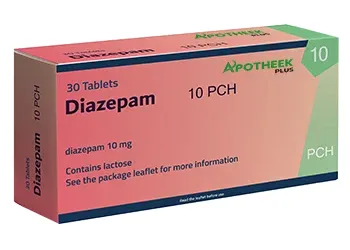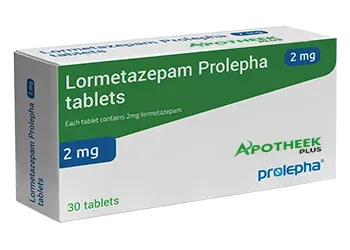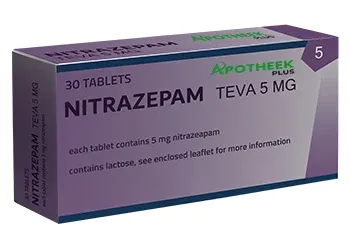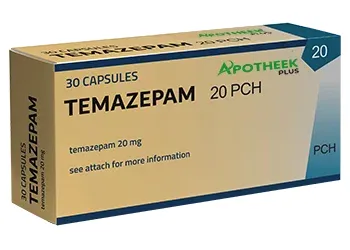What are you looking for?
Search
Welcome to Apotheek Plus France!

The Role of Zolpidem 10 mg in Managing Sleep Deprivation and Its Benefits
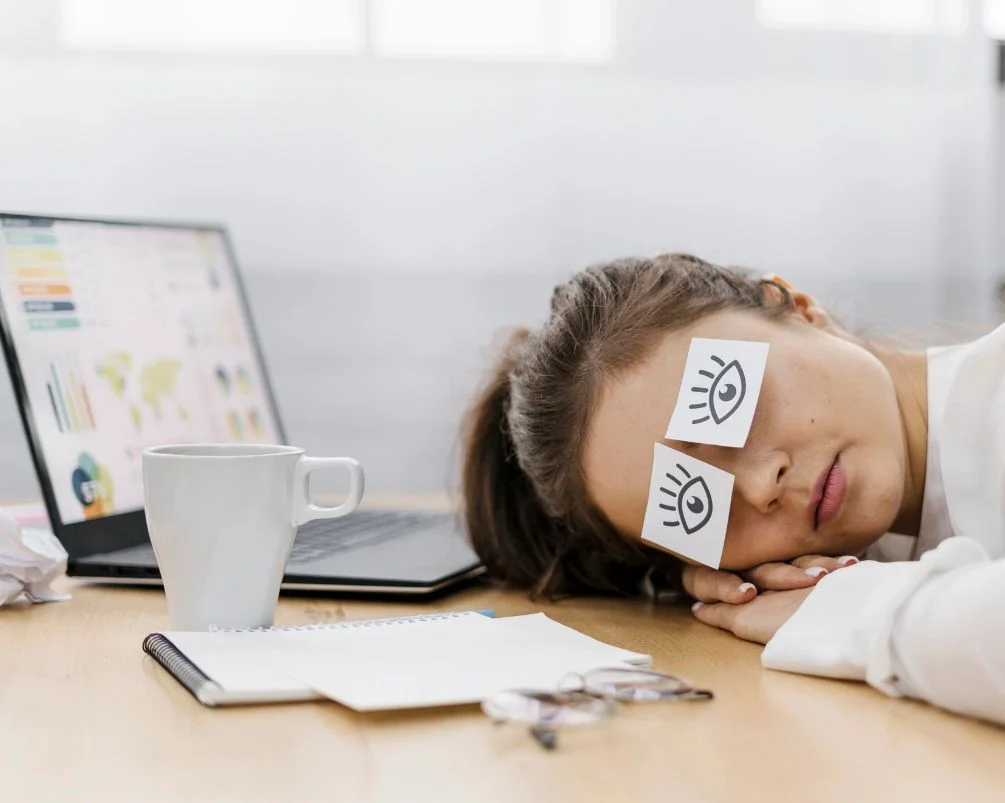
In modern society, sleep deprivation is becoming a very serious problem. A large number of people have busy schedules, stress, and poor sleep habits, and struggle to get enough sleep. Insufficient sleep often leads to fatigue, mood swings, and a decrease in productivity. People who have been deprived of sleep chronically increase their risk of serious diseases, such as heart disease, diabetes, or depression.
Zolpidem 10 mg is one of the drugs used as a treatment for sleep disorders. It is recommended for people who can't go to sleep. This medication is used to calm brain activity so users can get a restful sleep. In this blog, I will share with you how Zolpidem works, its trade name, and its advisories.
What Is Zolpidem?
Zolpidem 10 mg is a drug that is prescribed for insomnia. It is a drug of a class known as sedative-hypnotics. These medications slow activity in the brain to relax and to sleep.
How Zolpidem Works
Zolpidem acts by enhancing the effects of the brain chemical known as gamma-aminobutyric acid (GABA). GABA is responsible for reducing brain activity and inducing sleep. Zolpidem enhances the effect of GABA in order to help individuals quickly fall asleep and stay asleep longer.
Approved Uses
Zolpidem is prescribed for short-term treatment of insomnia. It helps individuals who:
-
Have difficulty falling asleep
-
Wake up frequently during the night
-
Experience sleep disturbances caused by stress or anxiety
The Connection Between Zolpidem 10 mg and Sleep Deprivation
Stress, work demands, and other lifestyle choices put millions of people in the grip of sleep deprivation. Lack of rest in the body does not allow it to function properly.
Effects of Sleep Deprivation on the Body
Weakened immune system: Under the influence of poor sleep, the body becomes incapable of fighting infections.
Weight gain: This interferes with chemicals in your blood that tell your appetite to calm down.
Increased risk of chronic diseases: Sleep problems also lead to heart disease, high blood pressure, and diabetes.
Effects on Mental and Cognitive Health
Memory issues: Sleep helps process and store information in the brain.
Lack of focus: Sleep deprivation impairs concentration and decision-making skills.
Mood swings: It may increase irritability, anxiety, and symptoms of depression.
How Zolpidem 10 mg Helps
Zolpidem is a very effective treatment for sleep-deprived patients. It encourages relaxation and helps users to fall asleep faster and get more sleep cycles. It restores energy levels and helps maintain a good state of well-being.
Benefits of Zolpidem in Managing Sleep Deprivation
1. Rapid Onset of Sleep
Many people spend hours tossing and turning in bed before falling asleep. Zolpidem helps users drift off quickly, usually within 15 to 30 minutes. This reduces bedtime frustration and ensures more hours of restful sleep.
2. Improved Sleep Quality
Some individuals sleep for long hours but still wake up feeling tired. Poor sleep quality prevents the body from fully recovering. Zolpidem enhances deep sleep, allowing the brain and body to recharge properly.
3. Short-Term Relief Without Daytime Drowsiness
Unlike some sleep aids, Zolpidem does not cause excessive drowsiness the next day. It wears off within a few hours, so users wake up feeling refreshed and alert. However, taking a high dose or not getting enough sleep may lead to grogginess.
4. Supports Cognitive Function
When people sleep better, they think more clearly and perform daily tasks more efficiently. Zolpidem improves sleep patterns, helping users regain mental clarity and focus.
Considerations and Precautions
While Zolpidem is effective, it requires careful use. Users should follow their doctor’s recommendations to avoid potential risks.
Possible zolpidem 10 mg side effects
Individuals may experience zolpidem 10 mg side effects, such as:
-
Dizziness
-
Headache
-
Nausea
-
Dry mouth
In rare cases, serious side effects may occur, including:
-
Memory loss
-
Confusion
-
Sleepwalking or engaging in activities while asleep
2. Risk of Dependence and Tolerance
Zolpidem is meant for short-term use. Taking it for extended periods can lead to dependence, where the body relies on the medication to fall asleep. Over time, users may need higher doses to achieve the same effect, increasing the risk of addiction.
3. Guidelines for Safe Use
Use Zolpidem only as prescribed by a doctor.
Take the lowest effective dose to reduce risks.
Avoid mixing it with alcohol or other sedatives.
Take it only when you have at least 7-8 hours available for sleep.
Alternatives to Zolpidem
Some individuals prefer non-medication approaches to managing sleep problems. These methods can improve sleep naturally and reduce reliance on medication.
1. Cognitive Behavioral Therapy for Insomnia (CBT-I)
CBT-I is a structured therapy that helps individuals change negative sleep patterns. It teaches relaxation techniques, sleep scheduling, and ways to manage stress.
2. Lifestyle Changes for Better Sleep
Maintain a consistent sleep schedule: Go to bed and wake up at the same time daily.
Create a relaxing bedtime routine: Avoid screens, bright lights, and stimulating activities before bed.
Exercise regularly: Physical activity improves sleep quality but should not be done right before bed.
Limit caffeine and alcohol: These substances interfere with sleep and should be avoided in the evening.
3. Other Sleep Aids
Melatonin: A natural hormone that regulates sleep cycles.
Magnesium: Supports relaxation and nervous system function.
Herbal teas: Chamomile and valerian root promote relaxation.
Conclusion
Zolpidem 10 mg provides effective short-term relief for people suffering from sleep deprivation. It helps individuals fall asleep quickly, improves sleep quality, and restores mental clarity. However, it is not a long-term solution and should always be used responsibly under medical supervision.
Maintaining proper sleep hygiene and exploring non-medication approaches remain essential for long-term sleep health. People experiencing chronic sleep issues should consult a healthcare provider for personalized treatment options.
For those with a valid prescription, it's now possible to order medication online from trusted sources, offering convenience and discretion. By combining such options with healthy lifestyle habits, individuals can achieve better sleep and improve their overall well-being.
Frequently Asked Questions
Is Zolpidem a benzodiazepine?
No. Zolpidem belongs to the imidazopyridine class of hypnotics. Though they act on the same GABA-A receptors as benzodiazepines, it is chemically different than that drug. This kind of category is the reason for its rapid sleep onset and low residual drowsiness overall.
Is Zolpidem safe for children or teenagers to use?
Zolpidem should not be used in people younger than 18 years. Safety and efficacy have not been proven in children or teenagers.
What is Zolpidem 10mg used to treat?
Zolpidem is used to treat adults with short-term insomnia, and it helps them fall asleep faster, sleep better and longer, and get higher-quality rest. In some cases, it can be included in pre-surgical sedation.
For how long can I safely take Zolpidem?
Zolpidem is generally appropriate only for short-term use, up to 2–4 weeks, including tapering. Chronic use raises the potential for tolerance, dependence, and rebound insomnia.
What is Zolpidem used for, and what are its side effects?
Side effects commonly include sleepiness, dizziness, headache, nausea, and rare nighttime behavior such as sleepwalking or “sleep-driving.” Anaphylactic reactions can happen and would need immediate medical help.
What are the contraindications?
Zolpidem should not be used if you have:
Severe liver disease
Significant breathing difficulties or sleep apnea
Myasthenia gravis
Hypersensitivity to Zolpidem or any of its components
History of substance abuse
Older patients require lower doses (usually 5mg), since they are more prone to confusion and falls.
Is there dependence or withdrawal with Zolpidem?
Yes. Long-term or excessive use can result in either physiological or psychological dependence. Sudden withdrawal of the drug can provoke rebound insomnia, anxiety, or agitation. Be sure to follow your doctor’s instructions for tapering.
What is rebound insomnia?
Rebound insomnia is a short-term aggravation of insomnia that is experienced when you suddenly stop taking Zolpidem. Slow tapering and good sleep hygiene (regular bedtimes, avoiding caffeine, minimal screen time) help mitigate this as well.
Is it safe to take Zolpidem with other drugs or alcohol?
Do not use this medicine with alcohol or other central nervous system depressants (eg, sedatives, opioids, certain antidepressants). The concurrent use of these can result in synergistic sedation and potential for respiratory depression. Some antibiotics or antifungals might also elevate Zolpidem levels; ask your physician or pharmacist before mixing medications.
What is the prescribing of Zolpidem in France?
Prescription in France has required Zolpidem to be prescribed sûr ordonnance since April 2017. This means:
Prescriptions should be written with full words, ensuring no abbreviations
Duration: -the duration is strictly limited (normally 28 days)
Refills require a new prescription
This also provides a safeguard against abuse of the system.
Is Zolpidem reimbursed in France?
Yes. For instance, Zolpidem TEVA 10mg is reimbursed by the French national health insurance at a rate of 15%. The preparations are usually packaged in 7 or 10 tablets, and generic preparations can be purchased for less.
Are there generic versions of Zolpidem?
Yes, multiple generics exist, such as Zolpidem EG, Zolpidem Arrow, and Zolpidem Teva. These contain the same active ingredient and are equivalent in effect, but may differ slightly in excipients or price.
What is the correct way to come off Zolpidem?
Do not stop abruptly, especially after several weeks of use. Gradually taper the dose under your doctor’s supervision to reduce withdrawal symptoms and rebound insomnia.

